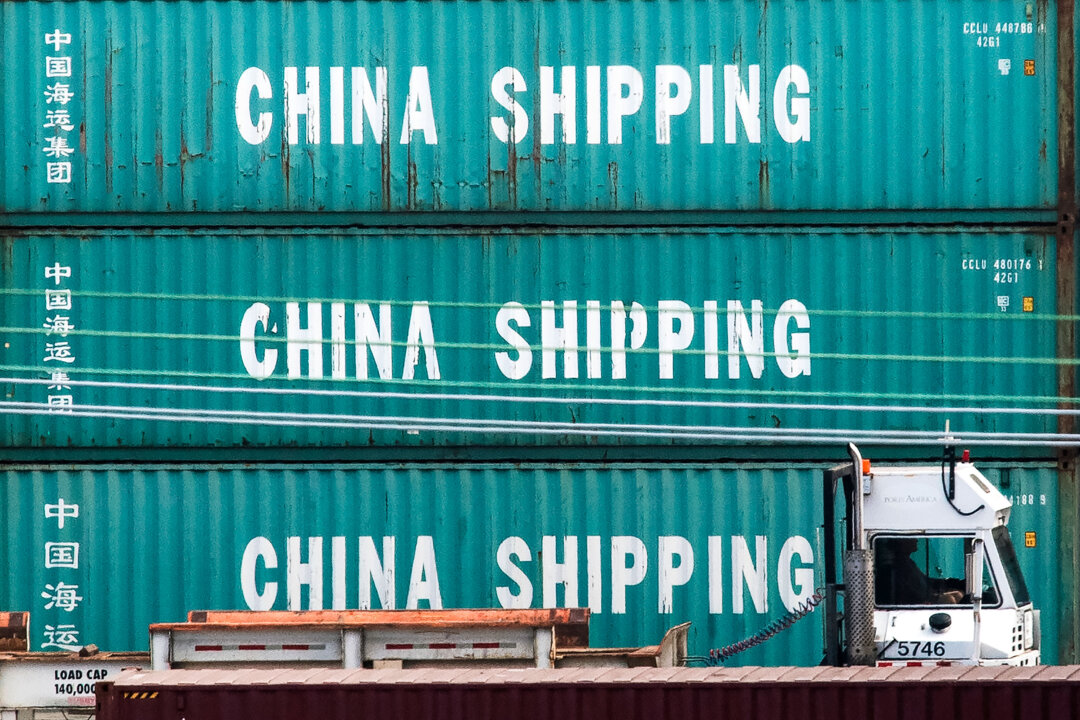The panel said China shouldn’t enjoy the same trade terms as U.S. allies, given its malpractices such as intellectual property theft and market manipulation.
An independent federal agency is recommending that lawmakers strip the Chinese regime of its trade privileges with the United States, ending what is known as permanent normal trade relations (PNTR) status, which Beijing has enjoyed for more than 20 years.
In its annual report to Congress released on Nov. 19, the U.S.–China Economic and Security Review Commission (USCC) offered 32 recommendations, and for the first time, it called for revoking China’s PNTR status, previously known as the most favored nation status. The preferred trading status opened the U.S. market to Chinese products with trade advantages such as reduced tariffs.
“This move would signal a shift toward a more assertive trade policy aimed at protecting U.S. industries and workers from economic coercion,” the commission said, adding that the Chinese regime shouldn’t benefit from the same trade terms as U.S. allies, given its malpractices such as intellectual property theft and market manipulation.
The commission explained that implementing this change would allow the United States to reinstate annual reviews of the Chinese regime’s trade practices and thus gain more leverage to deal with its “unfair trade behaviors.”
During his first term in office, President-elect Donald Trump broke with his predecessors to confront the Chinese Communist Party (CCP) head-on, pushing back against its malign and hostile behaviors. Experts expect Trump to escalate deterrence against the Chinese regime’s aggression during his second term, tackling issues such as the country’s overcapacity.
The commission’s suggestion accords with moves by some Republicans, including Vice President-elect JD Vance and Sen. Marco Rubio (R-Fla.), Trump’s nominee for secretary of state.
Last year, Vance joined Sen. Tom Cotton (R-Ark.) in introducing a bill to end China’s PNTR status. Cotton, Rubio, and Sen. Josh Hawley (R-Mo.) introduced a similar bill in September.
A House version of the legislation was introduced by Rep. John Moolenaar (R-Mich.) earlier this month.
“Repealing PNTR would basically provide the president the authority to revisit China’s most favored nation status under U.S. law,” USCC commissioner Jacob Helberg, a senior adviser to the CEO of Palantir Technologies, said at an event announcing the report on Nov. 19.
Helberg explained that revoking China’s most favored nation status would not automatically trigger an increase in tariffs.
“It would give the president the authority to adjust tariffs, which PNTR cemented [in] a statutory way,” he said.
The president “deserves the flexibility to recalibrate America’s trading relationship with China,” Helberg said, pointing out that the Chinese regime has not lived up to its commitments as a member of the World Trade Organization (WTO) since joining it in 2001.
“I think it’s fair to assume that it’s not going to start suddenly abiding by its [WTO] commitments. It will never abide by its commitments and, therefore, we need to take stock of that and recalibrate our relationship accordingly.”
Under former President Bill Clinton, the United States granted China PNTR status in 2000, which paved the way for the country’s accession to the WTO.
Scott Paul, president of the Alliance for American Manufacturing, voiced support for the issue during a congressional hearing in February 2023.
“The CCP has ramped up industrial subsidies, strengthened its [state-owned enterprises], continued a genocide of ethnic minorities, sided with Vladimir Putin, broken its promises on Hong Kong, and become more aggressive in the South China Sea and in its threatening posture towards Taiwan,” Paul said at the time, according to his written statement.
In September 2023, the Coalition for a Prosperous America, a nonprofit business advocacy organization, published an analysis showing that the U.S. real gross domestic product could grow by 1.75 percent after revoking China’s PNTR and that 2 million new American jobs could be created.
On the campaign trail, Trump proposed tariffs of at least 60 percent on Chinese imports. He also vowed to revoke China’s PNTR status, ban Chinese nationals from buying up American real estate and industries, and rebuild alliances and the U.S. military to counter the Chinese regime.
House Speaker Mike Johnson (R-La.) took to social media platform X on Nov. 19 to respond to the commission’s recommendations.
“Beijing’s economic exploitation and military expansion pose an urgent threat to America’s security, prosperity, & way of life,” Johnson wrote. “Congress will continue to use the conclusions & recommendations from @USCC_GOV to combat China.”

